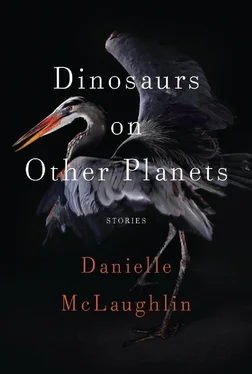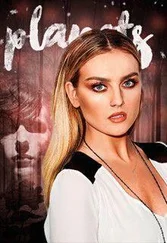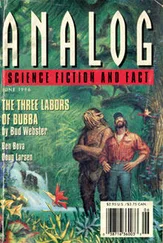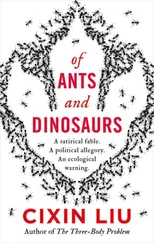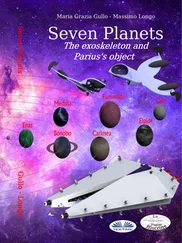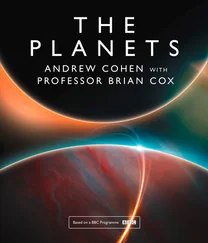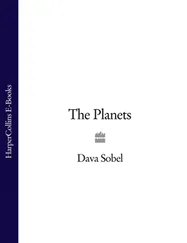Her mother took a mouthful of egg, then put the spoon down. “She used to be so pretty,” she said. “She’s let herself go.” It was true, Aileen thought, looking at her sister. Janet used to be beautiful. “It’s not easy to keep a man,” her mother continued. “She’d want to be careful. Tidy herself up a bit.” Aileen’s father had died when she was three, so it wasn’t as if their mother had had to worry too long about keeping him, but Aileen didn’t say this. Janet slammed the car door and began to walk back toward the café entrance.
“It’s the children, of course,” Aileen’s mother said. “Children do that to you.”
Janet delayed for a while on the café porch. She appeared to be studying the posters on the notice board, advertisements for local fundraisers and sports fixtures and missing pets. When eventually she returned to the table, her eyes were red rimmed.
“You need to get Richard to have a word with that lad,” her mother said, inclining her head toward the car where Crucifixion Keith was now crying in the passenger seat. “Otherwise he’s only going to get worse. Best nip it in the bud.”
Aileen imagined Janet putting their mother in a hatch and running away, their mother rolled up like a rug, her head tucked into her tummy, the soft, almost noiseless thud as she landed. And then, as if they’d been discussing something different entirely, as if Janet was not sniffling furtively beside her, their mother looked across the table at Aileen and said: “Remember those dolls you had when you were young?”
“Yes,” Aileen said. It was hard to know where her mother might be going with this.
“I was only thinking about them the other day,” her mother said. “You were still playing with them when you were twelve or thirteen. I used to worry about that. I thought maybe you were a bit slow.”
“I collected dolls, Mam. Lots of girls did back then.”
“Yes,” her mother said. “Possibly you’re right.” And she nodded, but slowly, as if even now, thirty years on, she was still not fully convinced. “They very possibly did.”
They said goodbye to Janet and the children and left the café, driving farther south until they reached Courtmacsherry and the sweep of the bay, the white fleck of waves, the boats rising and falling along the pier. There was a small public beach — a narrow strip of pebbly sand — and a hotel set back from the sea behind a line of rocks and a bank of low sand dunes. Access to the beach from the public parking lot was along a sloping path, and Aileen helped her mother out of the car and linked her arm as they made their way down together. Her mother moved slowly and with care, her eyes following the progress of her own feet over the sand. A dozen or more elderly women were gathered at the shore — hotel residents, Aileen presumed, because they all wore matching red swim caps. They were watching an instructor, a man young enough to be their grandson, demonstrate swim strokes. And then, as though a nudge from providence, a way into the conversation Aileen had determined she would have with her mother today, she saw in the water a pregnant woman. There was something loud, almost indecent, about her large belly, as if a hologram of her impregnation were stored beneath the skin. As she made her way in to shore, a strip of seaweed drifted across her path and she flung it away without breaking her stroke. How easy she made it look, Aileen thought, how effortless. She wouldn’t have been surprised if the baby had swum out of her right then, without struggle, without pain, a small, shut-eyed thing carried in on the tide like a jellyfish. “She’d want to be careful,” Aileen’s mother said. “She’s quite far along. I’d be worried about that.”
“I’m sure she’ll be fine,” Aileen said. “She seems to be a strong swimmer.”
“She’s young, at least,” her mother said. “She has that going for her. Too young, maybe. I doubt there’s a husband.”
They had reached a cluster of flat black rocks. Her mother’s pace was slowing, her breath coming in ever-shorter gasps. Aileen looked at her and thought that she seemed to have shrunk since they left that morning. She wondered if the trip had been a mistake. But she’d asked the matron before setting out and the matron had said it should be fine, adding — rather curtly, Aileen thought — that she’d already told Janet the same thing. She helped her mother lower herself onto the flattest of the rocks to rest, and for a while they sat looking out at the sea and at the elderly women who were now moving farther out, yellow flotation devices tucked under their arms.
“I’m worried,” her mother said.
Aileen waited. Over the years, her mother had so devalued the currency of worry that it was impossible to guess what might come next.
“About…you know,” her mother said, “about what will happen.”
“What will happen when?”
“You know…” her mother said. “What will happen at the end.”
This was the first time her mother had addressed, directly, at least, the fact that she would soon die. “I’m afraid that there will be nobody there,” she said.
Aileen thought they were about to embark on a spiritual discussion, but her mother said: “Not you, not Janet, not anybody.” Her grip tightened on Aileen’s hand. “There was a man from the ground floor died last week,” she said. “Eily told me they couldn’t find a vein in the end, and he was screeching for an hour before the ambulance arrived.”
Aileen thought of the pregnancy chat rooms with their grotesque tales of forceps and episiotomies and thirty-hour labors. “Mam,” she said, “don’t be talking like that. You know I’ll be there.”
“You won’t. You’ll be in London.”
“They’ll contact me when…” Aileen wasn’t sure when they would contact her. Because how, at this point, could they know, really know, from one minute to the next, when the end might be? “They’ll contact me when the time comes,” she said. “And anyway, Janet will be there.”
“There’s something wrong with Janet,” her mother said. “I don’t know what it is, but there’s something wrong. I’m worried.”
Aileen reached across and took her mother’s hand. Farther up the coast, a kite surfer plowed a white furrow through the water. Aileen followed the plume of red and orange twisting in the sky above him as if the answer, the words she needed to next say to her mother, might be found up there. They sat in silence for a while. At the end of the day, Aileen thought, this was all she and her mother could offer one another, the comfort of being frightened together.
“I noticed you had a camera back in the car,” her mother said. “I’d like you to take my photograph.”
In the house in Ballyphehane, there had only ever been two photos of her mother: one taken on her wedding day, the other some years earlier in a cousin’s drawing room when her mother was still only a girl in a gingham dress and ankle socks, hair so fiercely parted it might have been done with a knife. “Yes, of course,” Aileen said. “A photo would be lovely. I’ll go get the camera.” She looked at her mother. “Will you be okay here by yourself?”
“Certainly,” her mother said. “Why wouldn’t I be?”
The afternoon had turned cold and, as she walked, Aileen pulled her jacket tighter about her. She was passing through the dunes when a sudden dizziness struck, accompanied by the nausea that her doctor kept insisting was a good sign. She sat down for a moment, and, lying back on the grass, she closed her eyes. Here, by the seafront, the neat lawns of the hotel gave way to scrub colonized by clusters of yellow-eyed daisies and celandines. Back in London, the father of her child — how strange those words still sounded, “her child”—would be taking the younger of his two sons to a violin lesson. He’d accused her of being heartless, selfish, in her plan to have the baby. “The boys are six and ten,” he’d said. “Have you considered at all what this will mean for them?” The nausea worsened and she tried to still her thoughts, to breathe slowly and deeply, but was foiled by the clamor of the gulls, circling and wheeling above the dunes. Their cries were sharp and high-pitched, almost human. As she lay there in the grass, they seemed to grow louder and shriller, and she sat up with a start, realizing that what she was hearing was not gulls, but women.
Читать дальше
